A. Name of the Case: --Hamer v. Sidway, Court of Appeals of New
advertisement
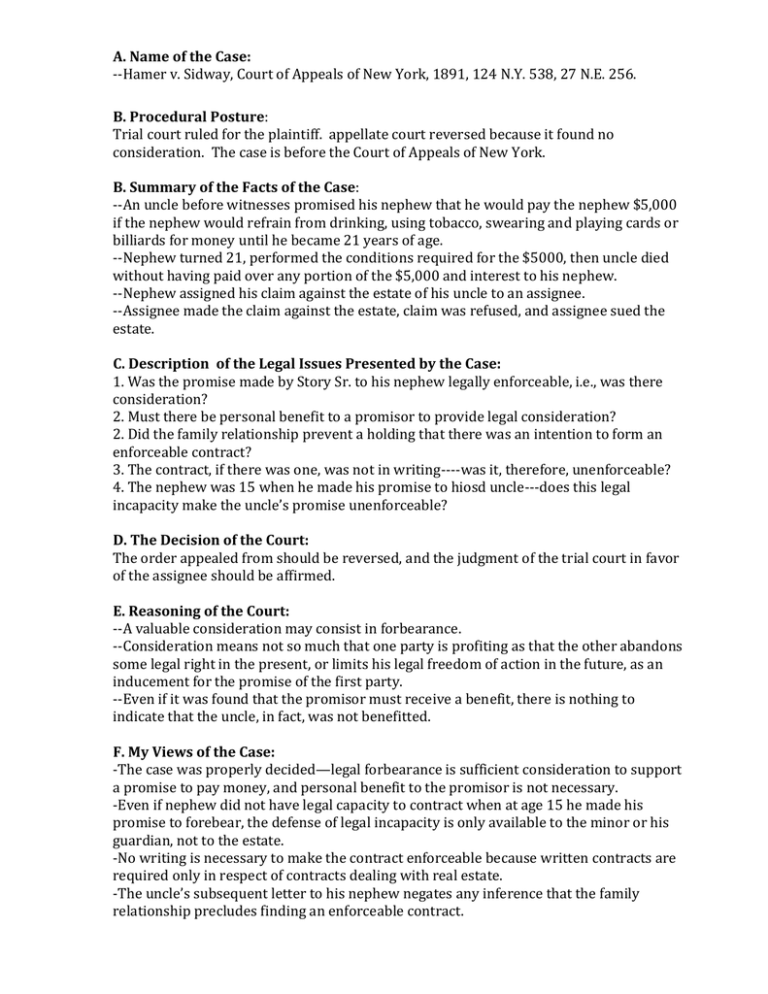
A. Name of the Case: --Hamer v. Sidway, Court of Appeals of New York, 1891, 124 N.Y. 538, 27 N.E. 256. B. Procedural Posture: Trial court ruled for the plaintiff. appellate court reversed because it found no consideration. The case is before the Court of Appeals of New York. B. Summary of the Facts of the Case: --An uncle before witnesses promised his nephew that he would pay the nephew $5,000 if the nephew would refrain from drinking, using tobacco, swearing and playing cards or billiards for money until he became 21 years of age. --Nephew turned 21, performed the conditions required for the $5000, then uncle died without having paid over any portion of the $5,000 and interest to his nephew. --Nephew assigned his claim against the estate of his uncle to an assignee. --Assignee made the claim against the estate, claim was refused, and assignee sued the estate. C. Description of the Legal Issues Presented by the Case: 1. Was the promise made by Story Sr. to his nephew legally enforceable, i.e., was there consideration? 2. Must there be personal benefit to a promisor to provide legal consideration? 2. Did the family relationship prevent a holding that there was an intention to form an enforceable contract? 3. The contract, if there was one, was not in writing----was it, therefore, unenforceable? 4. The nephew was 15 when he made his promise to hiosd uncle---does this legal incapacity make the uncle’s promise unenforceable? D. The Decision of the Court: The order appealed from should be reversed, and the judgment of the trial court in favor of the assignee should be affirmed. E. Reasoning of the Court: --A valuable consideration may consist in forbearance. --Consideration means not so much that one party is profiting as that the other abandons some legal right in the present, or limits his legal freedom of action in the future, as an inducement for the promise of the first party. --Even if it was found that the promisor must receive a benefit, there is nothing to indicate that the uncle, in fact, was not benefitted. F. My Views of the Case: -The case was properly decided—legal forbearance is sufficient consideration to support a promise to pay money, and personal benefit to the promisor is not necessary. -Even if nephew did not have legal capacity to contract when at age 15 he made his promise to forebear, the defense of legal incapacity is only available to the minor or his guardian, not to the estate. -No writing is necessary to make the contract enforceable because written contracts are required only in respect of contracts dealing with real estate. -The uncle’s subsequent letter to his nephew negates any inference that the family relationship precludes finding an enforceable contract.
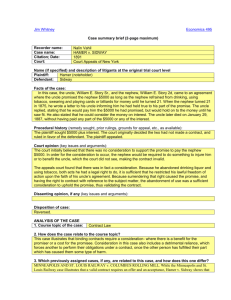
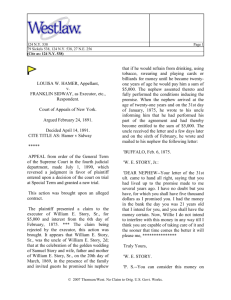
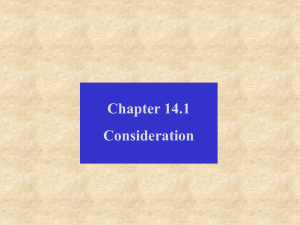
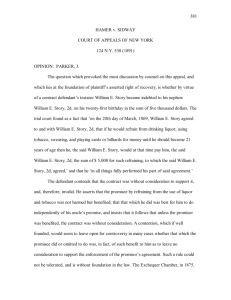
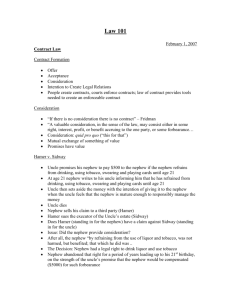
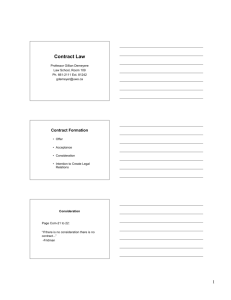
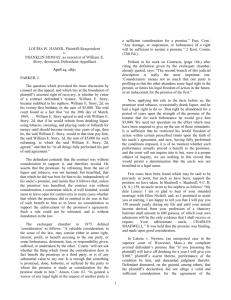
![[*538]](http://s3.studylib.net/store/data/009025140_1-275a2d6f042b34581fb4051708c3c6cd-300x300.png)
